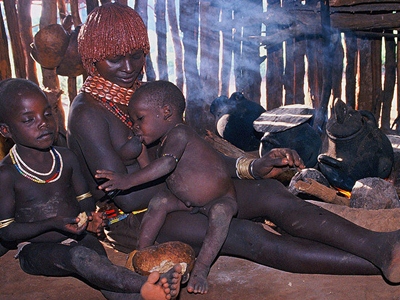
I am a child birth educator. I have been one for the past 14 years. Part of teaching a child birth series included the importance of breastfeeding. I am a breastfeeding advocate. I also support women who decide that breastfeeding is not their personal choice. A woman should never be subjected to guilt because of not breastfeeding her child. It impacts my work because I do work with families that have lower socio-economics. Breastfeeding cost less than formula feeding. Formula is quite expensive and WIC only covers a portion of the cost.
Impact on child survival and global situation
Optimal breastfeeding of infants under two years of age has the greatest potential impact on child survival of all preventive interventions, with the potential to prevent over 800,000 deaths (13 per cent of all deaths) in children under five in the developing world (Lancet 2013).
Breastfed children have at least six times greater chance of survival in the early months than non-breastfed children. An exclusively breastfed child is 14 times less likely to die in the first six months than a non-breastfed child, and breastfeeding drastically reduces deaths from acute respiratory infection and diarrhea, two major child killers (Lancet 2008). The potential impact of optimal breastfeeding practices is especially important in developing country situations with a high burden of disease and low access to clean water and sanitation. But non-breastfed children in industrialized countries are also at greater risk of dying - a recent study of post-neonatal mortality in the United States found a 25% increase in mortality among non-breastfed infants. In the UK Millennium Cohort Survey, six months of exclusive breast feeding was associated with a 53% decrease in hospital admissions for diarrhea and a 27% decrease in respiratory tract infections.
Nutrition: Breastfeeding. (2013). Retrieved May 15, 2014, from http://www.unicef.org/nutrition/index_24824.html
Breastfeeding Saves More Lives Than Any Other Preventive Intervention!-Unicef
Breastfeeding Around the World
Namibia

Seventy-one percent of Namibian babies are breastfed at birth. Exclusive breastfeeding in an infant’s first month of life has increased from just under 30% in 1992 to over 50% in 2007 but begins to taper off by four to five months. Of those who breastfeed, 65% continue to breastfeed their children at 12 to 15 months of age.
Sierra Leone

Perhaps best remembered for the commotion around Selma Hayek breastfeeding one of its children, Sierra Leone has some of the highest infant mortality rates in the world, as well as the lowest rates of exclusive breastfeeding. There is a deeply held belief among many that colostrum, or first milk, is poisonous and that breastmilk doesn’t provide enough food for a baby, resulting in the introduction of solid foods often too early. While 51% of infants are breastfed at birth, only 11% are exclusively breastfed in the first five months of life
Breastfeeding Around the World. (2012). Retrieved May 15, 2012, from http://www.incultureparent.com/2012/03/breastfeeding-around-the-world/#slide0
Your experience as a child birth educator is very interesting. I think this topic has been more in the public eye recently, with the articles on mothers who choose to breastfeed into early childhood. I wonder what your experience is with this trend. I appreciate your strong stance on breastfeeding, especially because you empathize with those mothers that choose not to. I agree that the decision is in the hands of the mother, but the positive effects for many people cannot be denied.
ReplyDelete